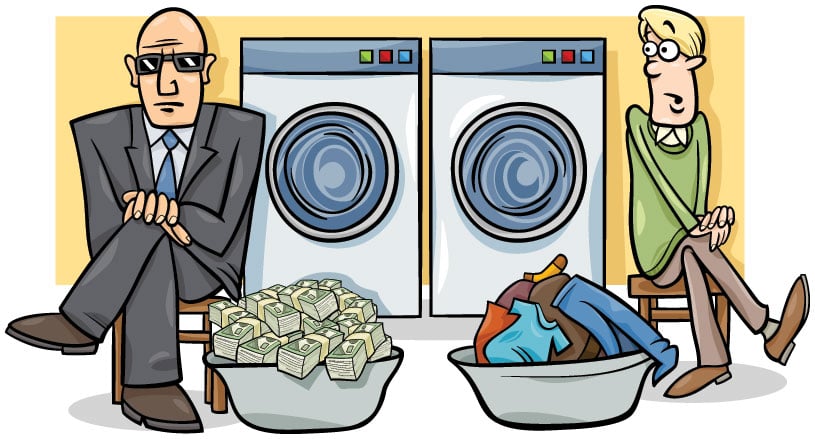The term money laundering gets used quite a lot in modern day business, and increasingly in the news, but we wonder if you know exactly what it means? In this article we hope to enlighten you on what money laundering is exactly, and how it can have major impacts on your business and your life.

What is Money Laundering?
When you think about the term “to launder” you think about making something clean. We launder clothes to change them from being dirty to being clean. Money laundering uses the same basic concept. It is the process by which someone takes “dirty” money and launders it to make “clean” money.
What is “dirty” money?
Any money obtained through criminal activity is deemed to be “dirty” money. This is outlined in the Proceeds of Crime Act 2002. Examples of such criminal activities include:
- Drug trafficking
- Human trafficking
- Robbery
- Tax evasion
How do you launder money?
The most common method for laundering money in the UK is to purchase property or other assets and then sell them on, thereby giving the money a seemingly legitimate source. Money can also be introduced into a company from a director and then withdrawn once the money has integrated into the business (for example using the money to buy stock or assets which are then sold on).
What industries are most affected by money laundering?
There are a number of industries specifically listed in the Money Laundering Regulations 2007 who are responsible for applying the regulations and carrying out specified due diligence. The main areas are:
- Finance professionals (i.e. accountants)
- Lending institutions (i.e. banks)
- Estate agents
- Legal professionals (i.e. solicitors)
- High value dealers (e.g. high end car dealer – items in excess of €15,000)
What are their responsibilities?
People who work in these industries are responsible for implementing the regulations. It is their responsibility to verify the identity of the people and organisations they trade with (known as due diligence), and also for identifying any suspicious or unusual activities (such as large cash deposits or withdrawals) which may be the proceeds of crime.
Ever wondered why when you go to buy a house or open a bank account, you are asked to provide a photographic form of ID along with a utility bill dated within the past 3 months? This is to satisfy their responsibilities under the Money Laundering Regulations 2007 for verifying your identity.
Reporting money laundering
If a member of staff from any of the above named industries becomes suspicious that a customer / client is dealing with large sums of cash, or that money used for business has come from an illegal source, they have a legal responsibility to report their suspicions. If they do not report their suspicions and then their customer / client is later convicted of money laundering, they themselves could face prosecution for failing to report.
Conclusion
So next time you are asked by your accountant to provide your photographic evidence and utility bills, and are then questioned about some high value or unusual transactions in your accounts, please stop and remember that we don’t do this to be difficult, we do it because we are legally bound to do it.


